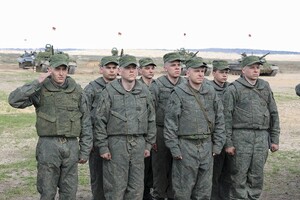His decision also shows that Moscow is preparing for a protracted conflict.

From the beginning of the war against Ukraine, Russia lost 80,000 of its soldiers killed and wounded. It is because of this that President Vladimir Putin signed a decree to increase the size of the occupying army by 137,000 soldiers, the NYT writes.
They note that this decision only once again confirms how acute the problems of the occupying army are in this war. Moreover, it is not only about losses, but also about the lack of progress at the front, according to some analysts.
But Putin's decision sends another important signal – even after six months of full-scale war, he is not going to back down.
“It's not a move you make when you expect your war to end quickly. It's something you make when you're making some sort of plan for a protracted conflict,” said Dara Massicot, senior political researcher at the RAND Corporation.
Read also: The State Department appreciated Putin's decision to increase the size of the army
Recall that Russian President Vladimir Putin decided increase the size of the Russian army to 2.04 million people. The relevant decree was signed by the dictator on August 25, it will enter into force in 2023.
Related video
The Ministry of Defense of Ukraine has already reacted to such a decision. They noted that in order to implement the decree, the Russian Federation must now purchase 2 million body bags. And the US State Department has expressed confidence that the Russian Federation will not be able to conquer our country even under such conditions, since it has already failed. > In Mariupol, the invaders force parents to send their children to occupation schools – the mayor's advisor The occupiers resort to direct threats. GUR announced the onset of a turning point in the war, the former head of the SZR does not think so According to the expert, this first requires a successful counteroffensive of the Armed Forces in one of the directions. Lots of shelling, hitting educational institutions and burned land: how the night passed in Donetsk region Fortunately, there is currently no information about the victims. Estonian Prime Minister discussed visa restrictions for Russians with the head of the European Commission Kallas emphasized that 30% of Russian citizens enter the EU through the Estonian border.




